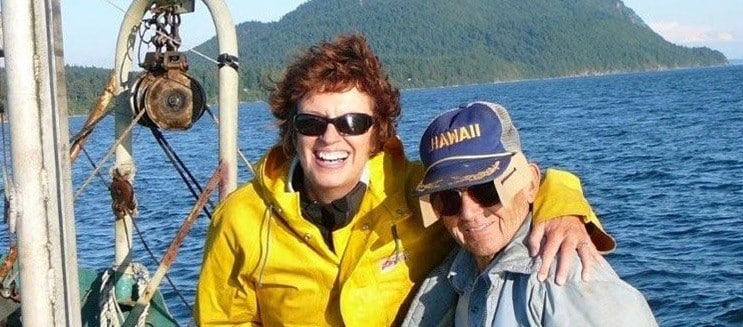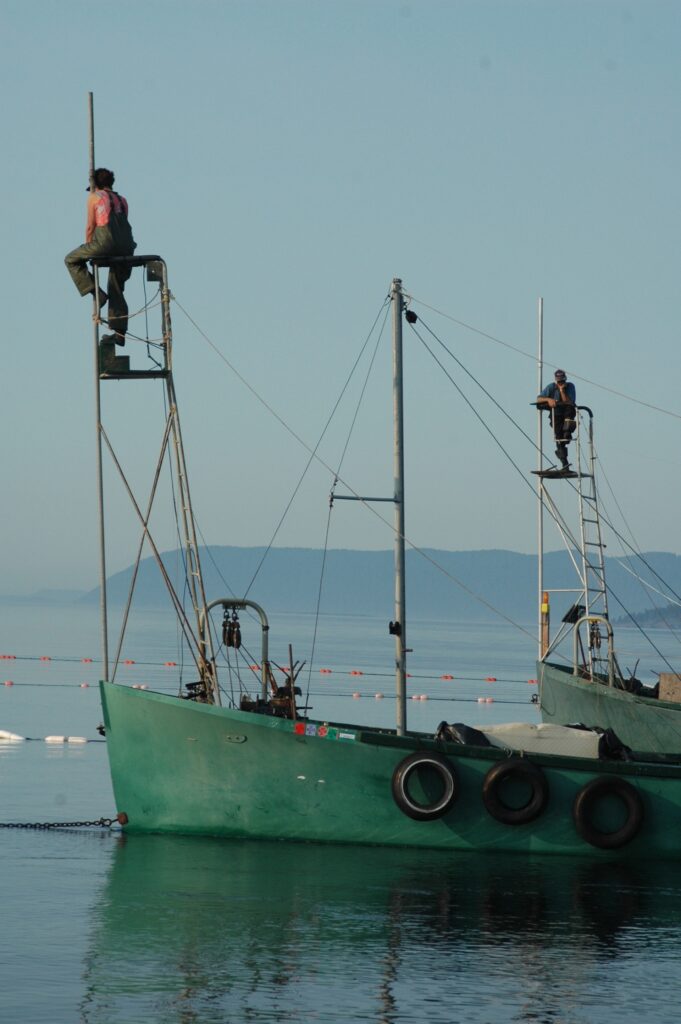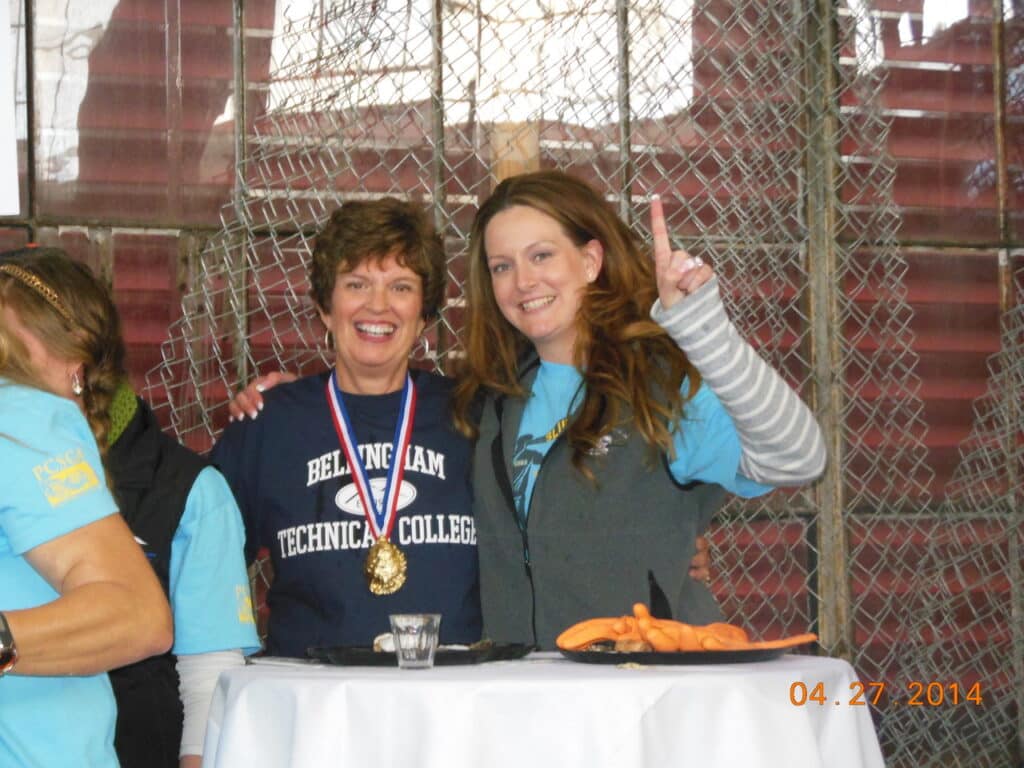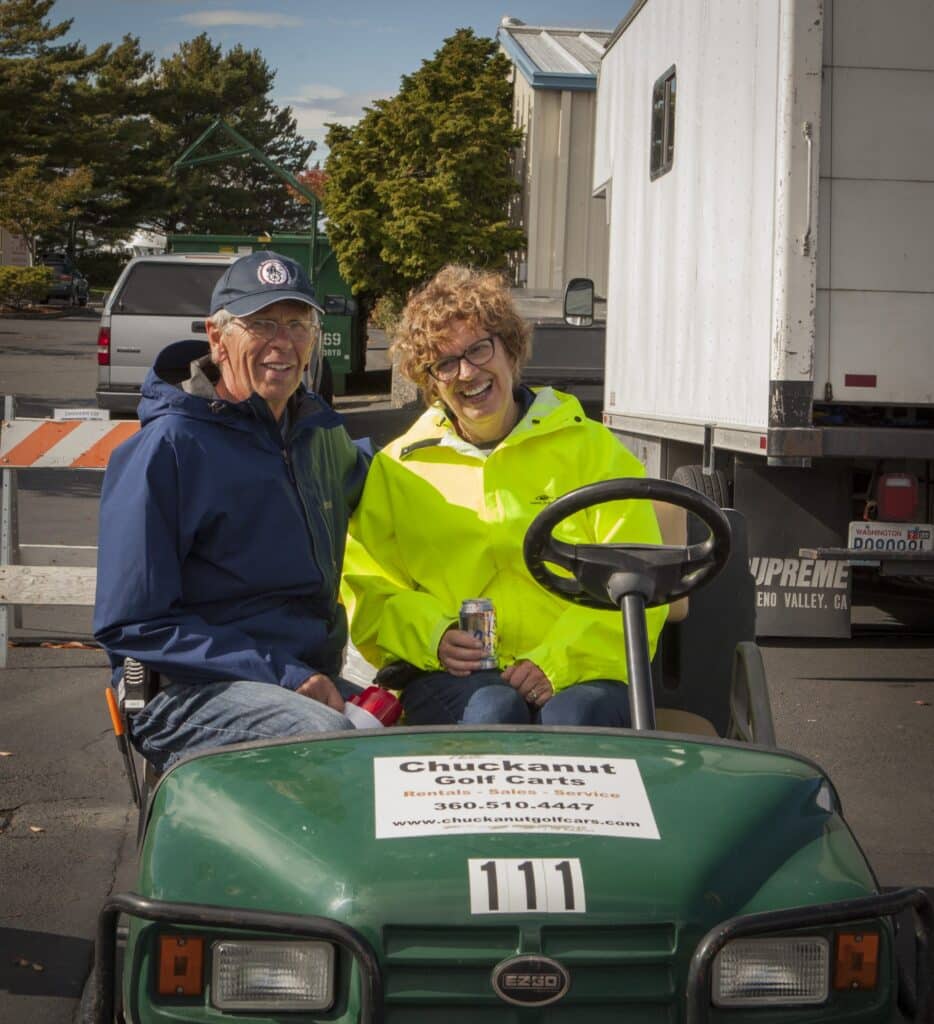By Vanessa Chin, Maritime Washington Storytelling Intern.
“It’s about that precious resource being able to be saved. It will require an ‘all-hands-on-deck’ approach to preserve our waters. Together, we can lift all boats.”
Deb Granger, Northwest Maritime Apprenticeship Program Director and Advocate for Whatcom County’s Working Waterfronts
A Bellingham local, Deb Granger is passionate about Whatcom County’s maritime industry. So passionate that she has unsuccessfully retired three times. The spark behind Bellingham’s SeaFeast, Dockside Market, and now the Northwest Maritime Apprenticeship, Deb is fueled by the opportunity to showcase the area’s underappreciated marine resources and the skilled people that make up the local maritime sector.
Deb herself has been a commercial fisher for more than 20 years who, along with her husband Pete and their crew, uses a reef net to catch salmon in Legoe Bay on Lummi Island during the summer. However, Deb’s real talent is connecting people. Whether it’s connecting residents to their local working waterfront, donors to Bellingham Technical College’s Fisheries and Aquaculture Sciences Program, or maritime employers with trained job seekers, these achievements are among Deb’s proudest.


In 2014, Deb moved back to Bellingham after retiring from the University of Washington, where she had managed a 12-state aquaculture research program for six years. At the time, Whatcom County’s working waterfront was facing redevelopment pressure that threatened to shut down maritime industries and displace workers. Deb connected with a group of citizens advocating for the preservation and enhancement of the working waterfront, and together they formed the Working Waterfront Coalition of Whatcom County.
The following year, in collaboration with her husband, Deb was already taking on her next project, Bellingham SeaFeast. Deb kickstarted this annual festival, which takes place on the second weekend of October and celebrates the area’s maritime culture and industry, natural marine resources, and, of course—food! Originally founded on a three-year seed grant from the City of Bellingham Tourism Commission, SeaFeast is now a registered nonprofit with a diverse board of directors, including members of Lummi Nation, who have been stewarding the Salish Sea since time immemorial. While attendance numbers were subdued during the COVID-19 pandemic, folks still came with smiles on their faces, hungry to learn and sample the area’s culinary bounty.
Early into the pandemic, Deb was inspired by the Local Catch Network to start Bellingham’s Dockside Market, a “dock to table” program that encourages the public to buy fresh seafood directly from local fishermen. Launched as part of Bellingham SeaFeast in partnership with local fishermen, the Port of Bellingham, and the Working Waterfront Coalition of Whatcom County, the first market was held in October 2020 and has been open every first and third Saturday of the month since.
“They had to wear masks, and so their eyes—I call them their smiling eyes—[were all that showed] above their masks. But people were happy. They get to connect with our local fishermen [and] fishing families.”
Deb Granger regarding Dockside Market shoppers during the pandemic
During her first career as an educator in the Bellingham School District, a parent once called her a can opener for her ability to “open up” potentials for students. This is what Deb’s latest project intends to do. Welcoming their first cohort in October 2022, the Northwest Maritime Apprenticeship is a four-year program of the Whatcom Working Waterfront Foundation, the 501(c)(3) arm of the Working Waterfront Coalition that supports workforce development and public education about maritime heritage. Apprentices work toward becoming Journey-level certified professional Marine Service Technicians by working during the day at their regular place of work in the maritime trades and then attending classes on nights and weekends. The courses are meant to both complement and expand upon the typically siloed work the apprentices do at their day jobs by teaching them how their particular niche relates to the functioning of the whole boat. Deb marvels, “It’s just fascinating for them to see how what they do at work fits with the whole boat, and then they can be problem solvers.”


These trained workers are desperately needed by marine trades businesses in Whatcom County, where the maritime sector represents more than 7% of the area’s workforce. “This whole workforce shortage is a big issue nationwide, and you hear apprentices touted and promoted, but the support for that is not there,” remarks Deb. She is excited to be welcoming the second cohort this fall but is still working hard to receive permanent funding for the program. “When I took this on, I thought it would be like setting up a high school class, of which I’ve set up many, but this is actually like setting up a college—there are so many layers to it,” says Deb. The first of its kind in the U.S., Deb hopes to expand the apprenticeship program statewide and eventually across the nation. Perhaps then she’ll finally be able to make her retirement stick.

